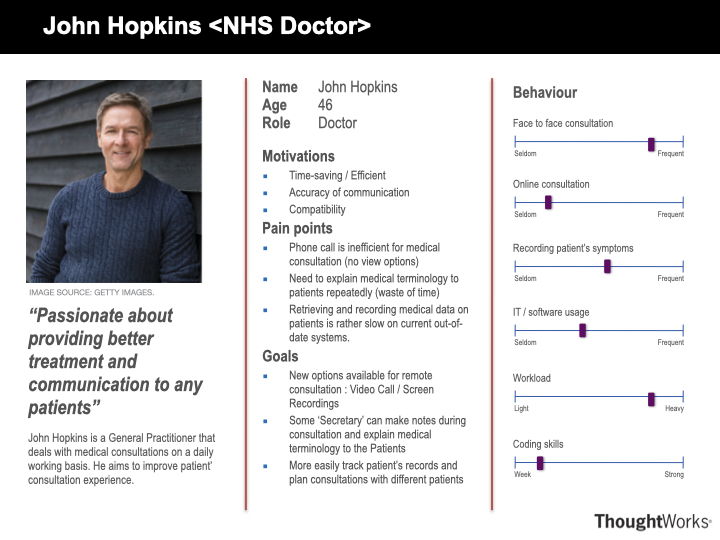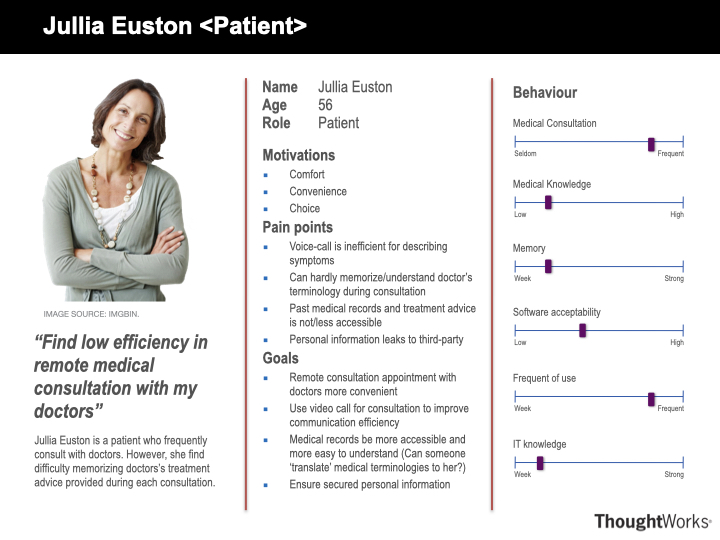Requirements
Project Background
During the epidemic, the NHS has been dealing with an increased number of remote consultations. However, the documentation of remote consultations is ineffective, and the medical information appears to be seldom exchanged with patients or other medical teams. Another source of concern is the loss of information in dialogues. Patients encounter difficulties frequently when they attempt to fully understand entire content of treatment and the recommended further actions. Human memory is not always accurate and, to certain extent, notes-taking during consultation is time-consuming and inefficient.
Project Goals
This project aims to deliver a prototype of an integrated medical platform. Doctors and Patients can book remote consolations and attend teleconferences on the website. After the consultation is finished, recorded audio data will be analyzed and Electronic Medical records will be summarized and generated for both the patient and the doctor. Past medical treatment and consultation records will be stored and patients and doctors can review them afterwards.
Requirements Gathering
After evaluating different methods of capturing requirements, we decided to conduct a small survey as it allows us to go in-depth of our user category and their requirements. Here are a part of two sample responses, one each from the patients and NHS doctors.
Patient
Have you consulted with a doctor remotely?
Yes
How was your remote consultation experience?
I am a mother with a baby. It was once my baby got a high fever, I called the doctor at home. He enquiry baby’s symptoms immediately, and requires me to send some photos to him. Then he provides a list of treatment advices and medicines taking my baby in care, and he recovers in the next day. I am really grateful that remote consultation could get involved, taking my baby to hospital at that night may delay treatment and aggravate the disease.
Would you like to consult remotely for medical advice in the future?
Yes
Why or why not?
Remote consultation can be very convenient and helpful for assessing and triaging serious injury and giving rapid advice on treatment or referral. However, during and following remote consultations it can be difficult to follow some of the advice and diagnoses the Doctor or nurse is coming up with and why, and it can be difficult to understand the full details of the treatment and actions they are recommending. Furthermore, with most telephone consultations they cannot see the physical problems I am describing so I don’t know if they can fully appreciate and understand the problem. Often if they are concerned about the problem, even if I am not, they still refer to hospital and I might have to relay all the information again.
Will doctor’s medical terminology create disturbance of comprehension to you?
Yes
Doctor
Have you done remote consultation?
Yes
How was your remote consultation experience?
The remote consultation is something that has come to the fore in healthcare over the last couple of years. Whilst really useful to support the efficiency of health services there are differences in how we communicate using remote vs face-to-face consultations, and as a doctor it is far harder to assess patient understanding. I often worry about what patients take away from consultations and how these facilitate transfer of information to the patient and their ‘usual’ clinical practitioners.
What do you think is the advantage of remote consultation?
Quicker access and triage for patients, increased efficiency for clinicians who may remotely from the service they are covering.
What do you think can be improved on current experience?
Information capture from the consultation – both for the patient and the health service. More intelligent methods of triage (may also be supported by the advance in wearable technologies which record changes in physiology). A video component to allow direct visualisation of signs would also be beneficial.
Do you believe the introduce of more remote consultation can lighten your overall workload?
Yes, but it will require intelligently designed and deployed technologies to facilitate best practice.
Personas


MoSCoW requirement list
Having finished the research of the requirements of our project while considering as many cases including edge ones, we held a meeting with our client with the final MoSCoW list:
MUST HAVE:
- User can upload audio file.
- Transcription of Audio File.
- Text Summarization of audio transcription.
- User can view the document online and download it.
SHOULD HAVE
- User authentication and password system.
- An online database to store all past records.
- Doctors can edit and check the electronic record.
- A simple user guide for beginners.
- Develop unit test of each function of the app.
COULD HAVE
- Different UI design and interact logic for patients and doctors.
- Integrated medical dictionary for patients’ understanding.
- Estimate the time required for generating record.
- Doctors can check the original text result of audio transcription.
- Document sharing between different users.
WON’T HAVE
- Multi-language support for clinical documents.
- Appointment system for booking medical consultations.
- Collaborative filtering algorithm for automatic improving the correctness of the system.
During the development phase, a few of the requirements were re-prioritized and slightly adjusted but most of them were consistently held. It has served as a guiding light for our whole project development.